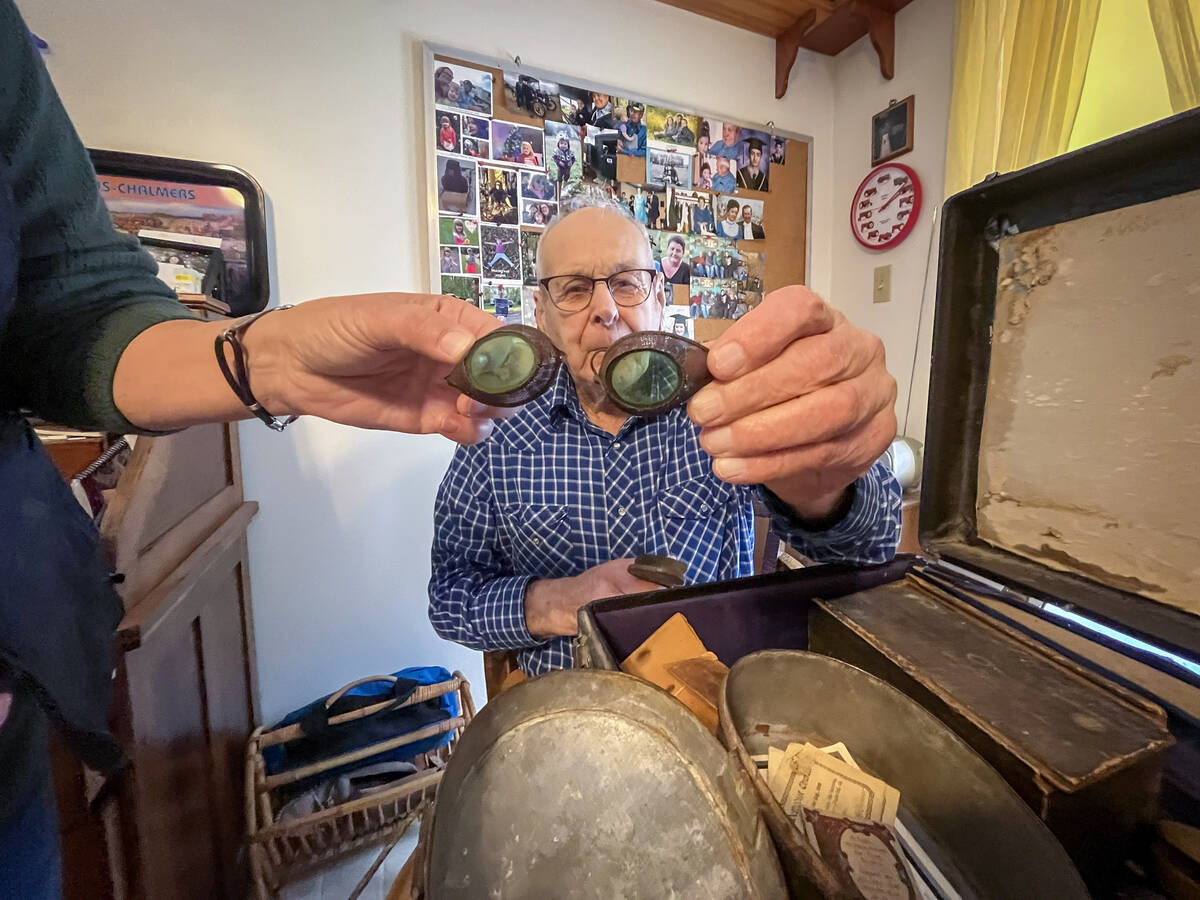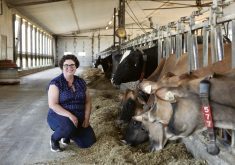Edda Boettcher has hired several local high school students for part-time help at Capella Meadows, a certified organic vegetable farm and goat dairy in Brussels, Ont. When it came time to add a position for the 2022 season, Boettcher decided to offer an internship instead of traditional employment.
“The people we could have hired didn’t have an interest in organic farming,” Boettcher explains. “It would have just been a job for them … We figured it would be more fitting for us to find people who were really interested in organic and biodynamic farming and give them an opportunity to learn.”
The first full-season internship at Capella Meadows ran from March to November, 2022. Boettcher read applications and interviewed applicants for a position offering minimum wage, affordable room and board, and hands-on education in what it takes to run a successful diversified organic farm.
Read Also

The why and how of preserving farm family history
Part two of a series explaining why and how to preserve farm family history.
The intern Boettcher hired had no farming experience and used the time to learn the basics from how to drive a tractor to how to manage crops, hoping to gain the skills he’d need to farm his own land.
Although federal data on farm internships is scant, several programs have seen increased interest. For instance, when Alberta-based Young Agrarians, the farmer-to-farmer educational resource network focused on organic, regenerative farming, introduced its Young Agrarians Prairies Apprenticeship Program six years ago, it had 30 applicants. Last year, it had 140, from all across the Prairies.
Co-ordinator Kolby Peterson says participating producers run diverse operations from large cattle and grain farms and mixed livestock operations to market gardens, seed farms, apiaries, urban farms and fibre farms, but applicants tend to have one thing in common.
“The majority of applicants have a passion for regenerative agriculture,” Peterson says. “They see regenerative farming as a way to mitigate climate change, raise a voice to social justice issues, contribute meaningfully to local economies (and) create more avenues for good food to reach their communities.”
Emphasizing education
Interest in internships might be on the rise but establishing a successful program is not without its challenges. For starters, producers need to consider whether an intern is the right fit for the farm.
“Investing in an apprentice requires much more time and more patience than hiring a skilled farm worker,” says Peterson. “Mentors sometimes realize, after receiving an apprentice, that what they wanted (or) needed was a skilled worker right off the get-go. They don’t have the capacity to balance work and education for an apprentice.”
Peterson suggests hosting prospective interns for a weekend or week-long work experience before committing to a long-term arrangement, noting that working together, sharing meals and having an extended introduction can help determine whether a live-work-educate scenario is the right fit.
Mary Alice Johnson hires interns for ALM Organic Farm in Sooke, B.C. on a trial basis. In addition to giving interns a chance to test farm life before committing to an entire season, the approach gives Johnson insight into whether it will be a good match.
“It’s not about skill and experience,” Johnson says. “I want people who are quick learners and interested in organic agriculture and who get along well with others since we all live and work together.”
Interns are put in charge of a specific aspect of the operation — anything from the restaurant or farmers market sales to subscription boxes — for the entire season. Johnson enlists interns to help with marketing and public relations and even shares her financials to help interns understand revenues and expenses in a farm operation. In exchange for their labour, Johnson provides room and board on the farm plus a stipend equivalent to minimum wage.
Before bringing interns to White Oak Pastures, a 3,200-acre grassfed livestock operation in Bluffton, Georgia, internship co-ordinator Debi McDade made sure all field managers were on board with the program and were willing to add “teacher” and “mentor” to their list of job duties.
“We knew that if field managers weren’t willing to take the extra time to teach, an internship program wasn’t going to work,” McDade explains.
The internship program includes an application and interview process, a midterm evaluation and an exit interview. Interns are hired as employees and paid an hourly wage. They are also offered low-cost housing in shared accommodation on the farm.
White Oak Pastures welcomes up to seven interns every quarter, moving them through two-week rotations in cattle, hogs, small ruminants, poultry, organic gardening and farm operations for a total of 12 weeks. The internship attracts applicants from across the United States and Canada who are interested in regenerative agriculture.
After witnessing sharp increases in the demand for internships during the pandemic, White Oak Pastures launched a second internship in on-farm processing. Interns work in the on-farm red meat and poultry abattoirs to learn all aspects of livestock processing.
In exchange for providing essential labour needed to run the diversified farm, White Oak Pastures offers hands-on education in all aspects of farm operations. The program includes farm tours, a week-long orientation and ongoing access to field managers.
“Our field managers are on board to embrace interns and teach them,” McDade says. “They are always open to answering questions and sharing their knowledge.”
Education is also an essential part of the experience at Capella Meadows. Boettcher created a structure that includes 35 hours per week of farm labour and five hours per week of paid training.
“We were very used to training young employees how to do what we do but interns need to understand the reasons, not just the steps,” she says. “We needed to set aside extra time for the education.”
Part of the learning process is letting interns take ownership of a project and giving them the freedom to make decisions. Boettcher asked her 2022 intern to take ownership of squash production and offered some guidance but also allowed him to make decisions about how to manage the land, grow the crop and get it to market.
“You have to sometimes let them make a mistake so they learn the consequences of doing it differently or trying new things,” Boettcher says. “It’s an important experience for them.”
Supporting the Future of Farming
At White Oak Pastures, the internship program also helps identify potential employees. On average, McDade offers half of interns full-time employment on the farm at the end of their internship and about half of those offers are accepted. The farm currently employs eight former interns.
“Our interns make phenomenal employees,” she says.
Internship programs are about much more than finding farm labour; internships also help inspire a new generation of farmers.
“One of my goals, as much as growing food for my community, is growing farmers for my community,” Johnson says. “Apprentices get a lot of experience growing food organically so they are prepared to pursue their own farming goals.”
Peterson often receives calls from producers who want to share the knowledge and wisdom they have acquired throughout their farming journeys or hope to find apprentices who want to take on a project that will diversify their farms. In some cases, farmers reaching the end of their own farming careers hope to connect with interns who might potentially take over their farm businesses.
“We emphasize that the program is primarily an educational program, and mentors must be passionate about teaching the next generation,” Peterson says. “It is a lot to put on overly full plates, but we see that our mentors are guided by their desire to cultivate new farmers while strengthening the regenerative farming community.”
















